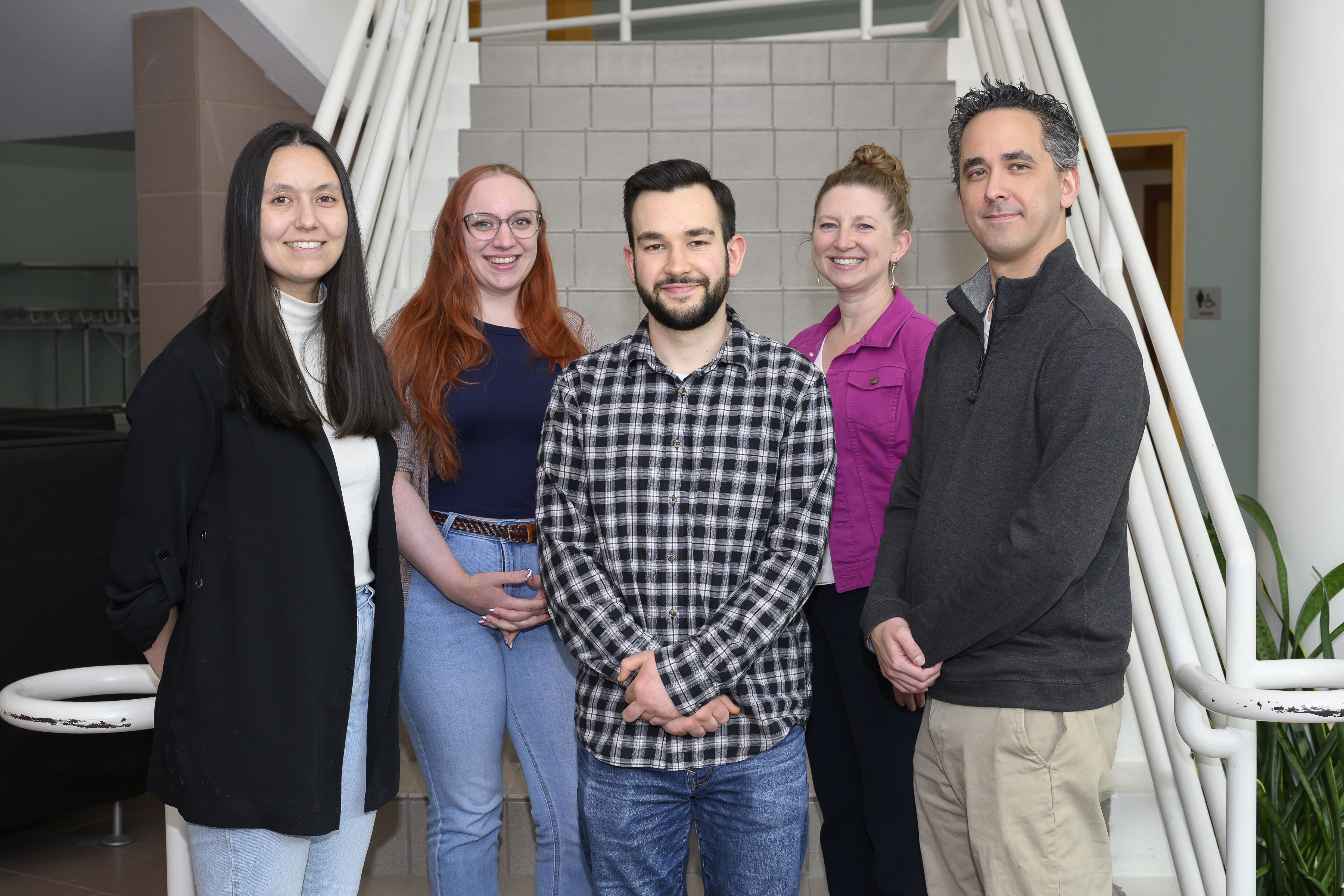Epigenomics Facility
What we offer
The BRC Epigenomics Facility’s (EGC) specialty is the ChIP-exo assay, an ultra-high-resolution version of ChIP-seq that identifies protein binding to DNA at specific sites genome-wide. Our expertise in mapping protein-DNA binding sites is especially useful for researchers interested in identifying novel DNA motifs bound by their protein of interest, assessing changes in transcription factor binding under different environmental or genetic conditions, and mapping nucleosome positions or modifications.
We process mammalian tissue samples, cell lines, yeast, and bacteria, and our full-service ChIP-exo assay includes all library preparation, sequencing, and basic bioinformatics (demultiplexing and genome alignment) with approximately a 2-month turnaround time. Researchers can provide their own antibodies against desired protein targets or pay the fractional cost per ChIP for antibodies against a limited set of popular targets (Histone H3, H3K27ac, H3K4me3, RNA Polymerase II, CTCF, TBP). TAP tags, HA tags, and Myc tags are also compatible with the ChIP-exo workflow. Interested researchers should schedule a free consultation with the Epigenomics team by contacting brc_epigenomics@cornell.edu!
The EGC provides a high-throughput end-to-end service that maps genome-wide protein-DNA interactions, tracks experimental metadata, and implements quality-controlled data processing and research-based analysis pipelines. We provide epigenomic and bioinformatic research resources and services that include sample preparation services and data generation. Our open-source platforms enable and reinforce FAIR data practices. The core is able to receive and process cell and tissue samples for various diagnostic epigenetic assays.
Service Workflow
Data Management and Sharing
Our services rely upon the Platform for Eukaryotic Genomic Regulation (PEGR RRID:SCR_021861), an open-source tracking system for ChIP-exo, ATAC-seq, ChIP-seq and other assays. PEGR is integrated with our lab’s implementation of NSF/NIH funded Galaxy.org for FAIR compliant, rigorous workflows that generate entirely reproducible datasets that we provide and host for our researchers. Our entire suite of open-source software platforms together provide end-to-end tracking of sample preparation from NGS sequencing to generation of publication-quality figures that are intrinsically linked to the meta-information available in each step of the sample experiment. Our software is designed to be accessible to biochemists and clinicians who may be less familiar with Epigenomics research, allowing researchers to aggregate samples and combine the results over thousands of datasets.
The PEGR platform, integrated with our Galaxy.org workflow engines and our own STENCIL (RRID:SCR_021878) visualization application, has been deployed in experimental work for over five years and enabled the following large-scale NIH funded projects:
Further development is ongoing to leverage government-funded cloud services available through Cornell’s involvement with Jetstream2, XSEDE and OSG to enable practically unlimited free access to nationally funded supercomputing systems for processing our researcher workflows. We also intend to extend our Epigenomics assays and services to include additional methods for technical processing of tissue and cell samples.
Our software platforms, including PEGR, were developed in collaboration with Frank Pugh, professor in the department of Molecular Biology and Genetics at Cornell; William KM Lai, Assistant Research Professor in the departments of Molecular Biology and Genetics and Department of Computational Biology at Cornell; Shaun Mahony, Associate Professor in the Biochemistry & Molecular Biology Department at Penn State University, and the Galaxy.org team at Penn State.To learn more about what we do and how it could further your research aims, contact us at brc_epigenomics@cornell.edu. We are looking forward to enabling exciting scientific discoveries together.
Acknowledging BRC services and staff
If you publish data that has been generated with the help of the services we provide, mentioning the Cornell Institute of Biotechnology in the acknowledgments section is very helpful. Here is why. You can also review our authorship guidelines. please reference the following research Resource Identifiers (RRIDs):
- Facility: RRID:SCR_021287
- PEGR: RRID:SCR_021861
- STENCIL: RRID:SCR_021878

